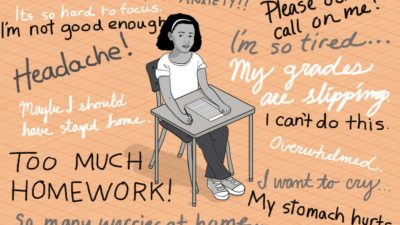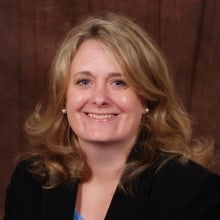
If you are the parent or teacher of a student with disabilities, you know that the best outcome for an Individualized Education Program meeting is an IEP that everyone on the team, including the parent, agrees is the right plan for supporting the student. The goal of every IEP meeting is team consensus, and team members often work very hard to reach that sweet spot.
What happens, though, when everyone agrees that the IEP as written is the right plan, but the supports or accommodations in the IEP are not put into place? That is a problem with IEP implementation, which can adversely affect not only the student, but also teachers and parents.
The usual remedy for a school’s failure to implement the IEP is compensatory education for the student. Compensatory education compensates, or makes up for, the services the student missed because the IEP was not implemented.
Compensatory services usually are not decided by the IEP team. Rather, a parent can make a request to the Exceptional Children’s Director of the school system and work to come to an agreement about the type and amount of services the student will receive. Most often, the services are provided outside of the regular school day, such as after school or during summer or other school breaks. The services should be provided by a certified teacher with the same qualifications as required by the provider specified in the IEP.
If the compensatory services are provided in a low student-to-teacher ratio, such as 1:1 or in a small group, the total number of hours of compensatory services may be fewer than the total number of hours of instruction missed. For instance, let’s say a student’s IEP required special education instruction from the inclusion math teacher in the regular education classroom for 30 minutes 5 days per week, with the teacher assisting all students in the classroom who have IEPs during that time. During the semester, the inclusion teacher was on sick leave for 16 school days, and a replacement teacher did not come to the classroom when she was gone. The student would be entitled to compensatory math instruction. That student might receive the services after school 1:1 with a special education teacher certified to teach middle school math. Because the services are 1:1, the total teaching time likely would be less than 8 hours, the total time missed.
The best first step for resolving an IEP implementation issue usually is direct communication with the person responsible for providing the special education service, accommodation, or modification that is not occurring as described in the IEP. Perhaps the student’s IEP says that big class projects will be chunked into smaller, more manageable parts with several deadlines along the way instead of one final due date, and that is not happening in Social Studies class. An email to the Social Studies teacher to remind her that the student’s IEP requires this accommodation would be a good idea. If this does not resolve the problem, then involving the special education staff who attended the student’s IEP meeting, the principal, and/or the school district’s Exceptional Children’s Director are appropriate next steps. Usually, emails are preferable to phone calls or notes sent in the student’s backpack because they create a clear record of attempts to resolve the issue and information exchanged between parents and school staff.
Hopefully, the issue will be resolved quickly and easily at the school level. If not, there are still options for informally resolving the dispute. One option is having a trained facilitator oversee an IEP meeting called specifically to address the implementation issue. The Exceptional Children’s division of the NC Department of Public Instruction provides trained IEP meeting facilitators at no cost to the parent or the school system. Some school districts also provide facilitators.
The facilitator is a neutral manager of the IEP meeting who creates a mutually agreeable agenda for the meeting, ensures that all team members have the opportunity to be heard during the meeting, and focuses the meeting on constructive conversation, collaboration, and problem-solving. Even when IEP team members are frustrated with each other and do not agree on important issues, the structure and guidance the facilitator brings to the meeting often help team members resolve the issues in dispute, even though the facilitator is not weighing in on the merits of the issues. More information on facilitators can be found at http://ec.ncpublicschools.gov/parent-resources/dispute-resolution/facilitation.
If a facilitated IEP meeting is not successful, or if the parents or school staff feel that facilitation will not resolve the issues, mediation also is an option. Mediators are provided at no cost to the parent and school system, and they must be qualified and impartial. Mediators usually engage more fully in the negotiation process between the parents and school staff than facilitators and sometimes offer suggestions for ways to resolve the disputed issues. A successful mediation usually ends with an agreement signed by the participants stating how the dispute has been settled, and what each participant agrees to do as part of the resolution. More information about mediation of IEP disputes can be found at http://ec.ncpublicschools.gov/parent-resources/dispute-resolution/mediation.
Formal options for resolving IEP disputes include filing a formal written complaint, also called a “state complaint,” and filing a petition for a contested case hearing, also called a “due process complaint.” Information about filing formal complaints can be found at http://ec.ncpublicschools.gov/parent-resources/dispute-resolution.
Recommended reading



